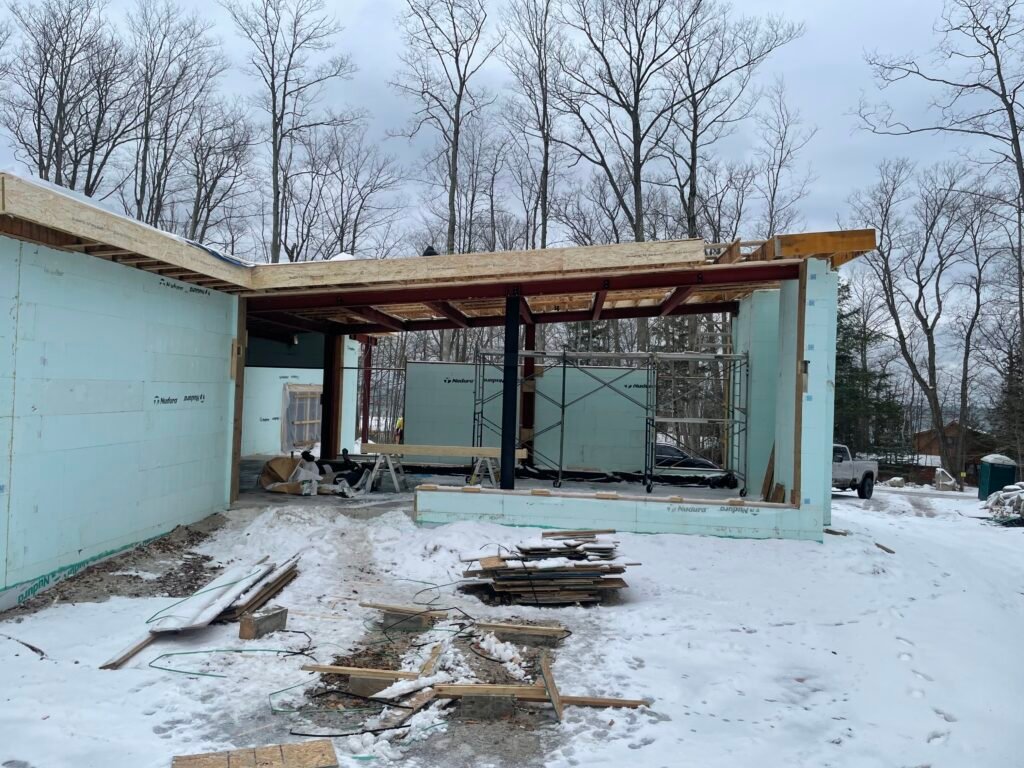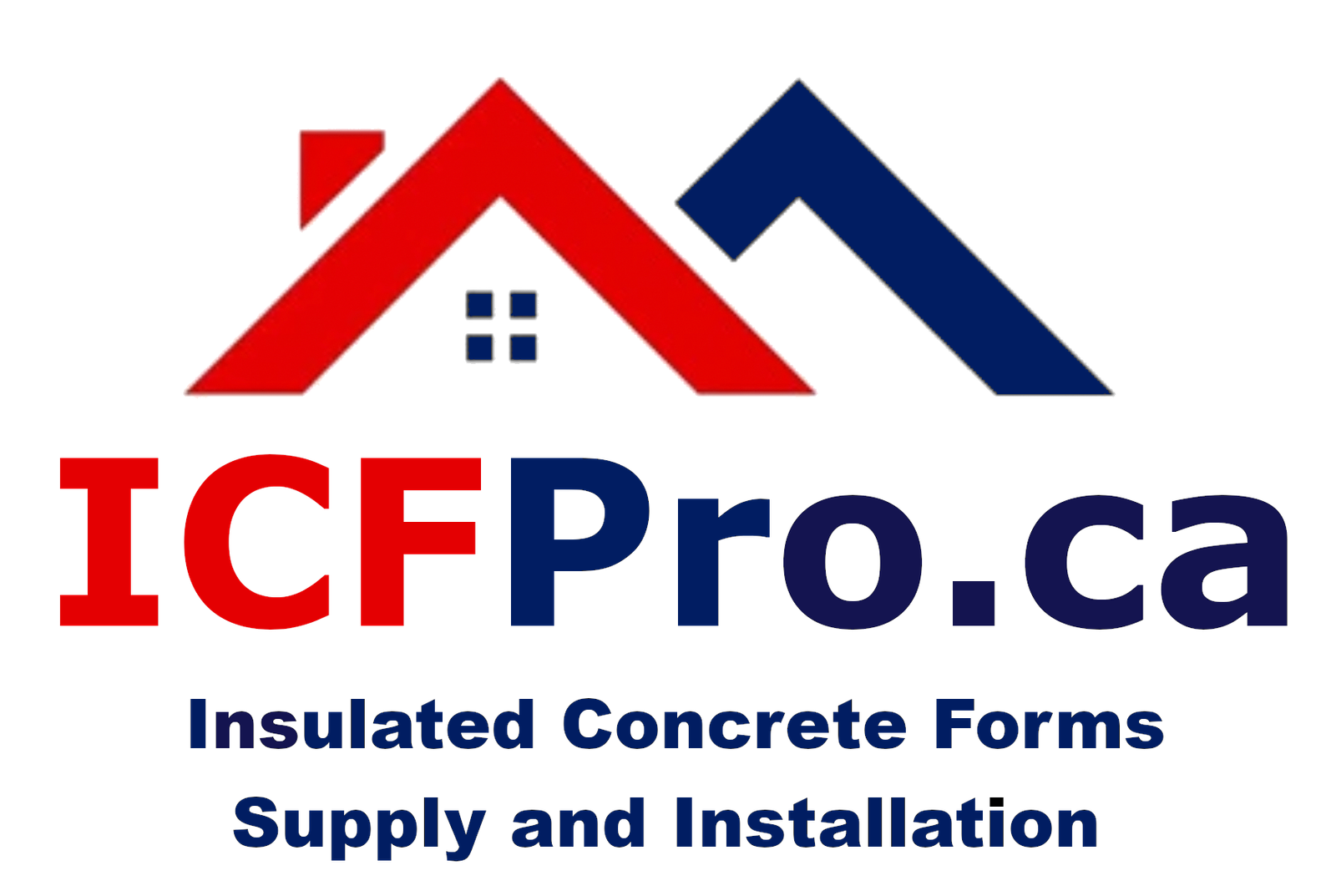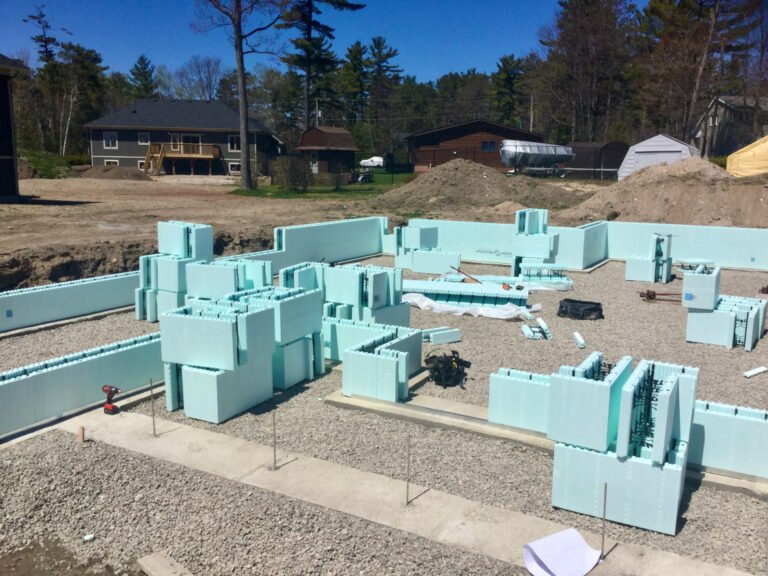ICFPro.ca is a division of ICFhome.ca - Phone 1 866 868-6606 - Direct Line 1 705 533-1633 - Email: info@icfhome.ca
ICF Cost Analysis

ICF Cost Analysis in Ontario: Breaking Down the Real Price of Building with Insulated Concrete Forms
When it comes to building a home in Ontario, the burning question on every homeowner’s mind is: How much is this going to cost me? If you’re considering Insulated Concrete Form (ICF) construction, you’ve probably heard that it’s pricier upfront but saves you money in the long run. But is it really worth it? Let’s break down the numbers, cut through the noise, and get to the cold, hard facts (with a little humor, of course).
ICF Cost Analysis: What You’re Really Paying For
For a 2,500 sq. ft. home with about 1,840 square feet of gross wall area, here’s what you’re looking at for ICF construction in Southern Ontario:
Materials & Labor Costs Per Square Foot
| Cost Component | Price (Per Sq. Ft.) |
|---|---|
| ICF Forms (6″ cavity) | $7.00–$9.00 |
| Reinforcing Steel | $2.00–$2.50 |
| Concrete | $8.00–$10.00 |
| Concrete Pump | $1.00 |
| Miscellaneous | $1.00 |
| Labor | $19.00–$22.00 |
Total Cost for an ICF Basement
- $38–$48 per sq. ft. for a completed basement wall.
- For an 1,840 sq. ft. wall area, that’s around $69,500.
While these figures may seem intimidating, let’s break it down further and compare it to traditional construction.
ICF Cost Analysis: What Drives the Price of ICF Homes?
1. Design Complexity: The More Fancy, The More Costly
- Curved walls? Expect higher labor and material costs.
- Extra corners? Each one adds more time and skill requirements.
- Architectural details? Unique designs often require custom formwork, increasing costs.
2. Materials: The Bulk of the Cost
- ICF blocks range from $7–$9 per sq. ft., but the price can vary depending on the brand and availability.
- Concrete and reinforcing steel are essential (and not cheap), adding another $10–$12.50 per sq. ft. combined.
3. Labor Costs: Skilled Workers Are a Must
- Labor costs for ICF range from $19–$22 per sq. ft..
- Why? Because ICF requires specialized training, and skilled ICF contractors are still in limited supply.
4. Foundation & Site Prep: Hidden Costs to Consider
- Soil conditions can impact costs—unstable soil may require extra reinforcement.
- Bracing rentals and concrete pumping are additional expenses you might not have considered.
5. Energy Efficiency: The Game-Changer
- While ICF costs more upfront, it offers up to 50% energy savings.
- Monthly utility bills can be as low as $0.03 per sq. ft., compared to $0.10 for wood-frame homes.
- Over 30 years, that can mean tens of thousands of dollars in savings.
ICF Cost Analysis: Comparing ICF vs. Traditional Construction
| Cost Factor | ICF Homes | Traditional Wood-Frame Homes |
| Initial Cost per Sq. Ft. | $130–$200 | $100–$160 |
| Total Cost for 2,000 sq. ft. Home | $240,000–$445,000 | $200,000–$360,000 |
| Energy Bills (Monthly) | $60–$90 | $150–$250 |
| Maintenance Costs (Annual) | Low | High (repairs, pest control, insulation loss) |
| Fire Resistance | Excellent (up to 4 hours) | Poor (wood burns, who knew?) |
| Lifespan | 100+ years | 50–80 years |
Verdict: Yes, ICF Costs More—But It’s a Long-Term Investment
- Higher upfront cost? Yes.
- Long-term savings on energy and maintenance? Absolutely.
- Durability? ICF homes laugh in the face of extreme weather, pests, and fire.
How to Reduce ICF Construction Costs
So, what if you want the benefits of ICF but don’t want to break the bank? Here are some tips:
1. Simplify the Design
- Straight walls = lower costs. Curves and extra corners add unnecessary expenses.
- Stick to standard window and door sizes to avoid custom bucks.
2. Optimize Material Usage
- Buy materials in bulk if possible—some suppliers offer discounts for large orders.
- Use locally sourced ICF blocks to avoid excessive shipping costs.
3. Choose a Skilled ICF Contractor
- Hiring an experienced crew ensures efficiency and reduces costly mistakes.
- Check references! A bad contractor can turn a great product into a nightmare.
4. Take Advantage of Incentives
- Some government rebates and green building programs may offer financial incentives for energy-efficient construction.
- Look into Ontario-specific grants for sustainable building practices.
Final Thoughts on ICF Cost Analysis: Is an ICF Home Right for You?
If you’re planning to build a home in Ontario and you want energy efficiency, durability, and long-term savings, then ICF is a smart investment. While it costs 5%–15% more upfront, the long-term savings on energy, maintenance, and insurance easily offset the initial cost.
However, if you’re looking for the cheapest upfront option, traditional wood-frame construction may still be the way to go—just be prepared for higher energy bills, ongoing maintenance, and potential regrets when Ontario’s winter hits.
Bottom line: If you’re playing the long game, ICF wins.
Related Questions on ICF Cost Analysis
- How do ICF costs vary across different regions in Ontario?
- What are the most affordable ways to build with ICF?
- Are there government incentives for ICF home construction?
- How do ICF blocks compare across different brands?
If you’re serious about building smarter, not harder, ICF is the way to go. And hey, in 30 years, when your energy-efficient home is still standing strong and barely costing you a dime in utilities, you’ll be thanking yourself for making the right choice. 😉


